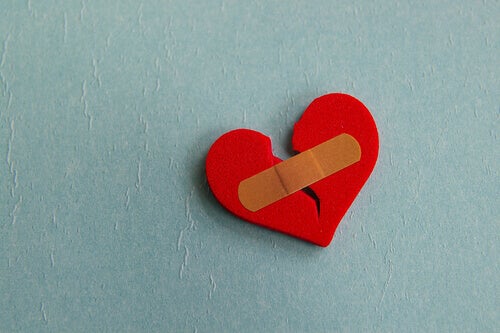Emotional Hygiene: Prioritizing Your Well-Being


Written and verified by the psychologist Valeria Sabater
People take care of their diet and their physical health, they practice sports, and yet most of them neglect a basic and priority aspect: their emotional well-being. Now, there’s something you should keep in mind. Taking care of those psychological downfalls that affect you on a daily basis and learning how to prevent them will make it easier for you to enjoy an authentic quality of life.
Dalai Lama, at a conference he gave in India in 2016, introduced the term “emotional hygiene”. According to this religious leader, the lack of this dimension leads human beings to discomfort and misbehavior. Thus, beyond limiting yourself to keeping a standard of physical and even financial hygiene, you must develop habits based on trust, love, and respect.
Moreover, Dalai Lama emphasized the idea of taking on emotional challenges: promoting understanding and nurturing realities such as empathy. Now, after this speech, psychologists from all around the world became interested in this term and started studying it from a more clinical perspective.
As a consequence, figures such as psychologist Guy Winch, a member of the American Psychological Association (APA), established more complete information and documentation in this matter. In fact, many people understand emotional hygiene as a great part of an individual’s mental sanity. Other professionals have created measures for the prevention of diseases that we should all carry out.
Four steps to emotional hygiene
One of the current challenges in clinical psychology is prevention. Actually, mental health professionals have spent many years applying a healthcare strategy but not a preventive one. In other words, a subject seeks professional help when they feel that they’re unable to handle their day-to-day life the way they used to.
However, as of today, there still aren’t adequate mechanisms to prevent important dimensions such as depression, anxiety disorders, stress, and even suicide. Therefore, it’s vital to reach the population in different ways and provide strategies to better deal with day-to-day problems, challenges, and discomforts.
Martin Seligman himself also tried this back in the day. This famous psychologist is known, above all, for his studies on depression and for introducing the term “learned helplessness”. That being said, he decided to turn his career around at one point. He made the decision to lay the foundations of positive psychology in order to offer skills to the population to invest in well-being and happiness.
As a result, emotional hygiene fell within this same perspective. It offers adequate measures to train individuals in psychological health, prevention, and the responsible exercise of emotional well-being. Let’s see four strategies.

1. Don’t ignore the pain you feel
Biologically, we all feel physical pain, and it’s this way for a reason. The human body alerts us when there’s an alteration, an imbalance, infection, or damage we need to attend to. On many occasions, our own body sends us signals, showing that our immune system isn’t working properly. In other cases, things might be more serious and we need to resort to medical help.
The same thing happens with emotional pain. It’s might be easy for you to turn a blind eye to your problems. However, leaving it all for tomorrow may be the worst thing you can do. There’s no point in hiding, covering, denying, or using drugs to relieve your suffering. Emotional problems require active responses. In order to make yourself feel better, you must do something about it instead of ignoring it.
2. Put a stop to your emotional bleeding
Now, what exactly is emotional bleeding? An example is enough to understand the symbolism of this expression. Imagine that your best friend or your parent is lying to you. You’re aware of their disaffection and lack of reciprocity on a daily basis. However, you refuse to accept it because you’re afraid to let that person go.
Now, the bleeding comes when you don’t do anything to change your situation. Basically, the wound gets bigger every day and at every moment. You bleed but try to play it off by saying “This is just temporary. I’m sure things will change soon”.
Emotional hygiene refers to taking preventive measures. The sooner you carry them out, the sooner your wounds will heal. Therefore, if you know a person or situation is hurting you right now, the best thing to do is to act on it.

3. The self-esteem muscle
The self-esteem muscle is a very important organ in the human body. It’s the one that gives you courage and strength when your surroundings are disturbing you in any way. It’s that vital impulse that reminds you of what you deserve and that alerts you of what you need in the present moment.
Likewise, there’s a study regarding this, which was published by Dr. Kristin D. Neff in the Social and Personality Psychology Compass journal. In it, she states that both self-esteem and knowing how to treat others with respect are key to guaranteeing an individual’s well-being.
Therefore, a great way to gain emotional hygiene is to take care of this psychological tendon that lies behind homeostasis. Neglecting it often leads to trouble.
4. Caring for your thoughts is caring for your health
Your thoughts can become your worst enemy. It’s quite easy to fall into a mental state filled with negativity, anguish, and fear. It’s also incredibly hard to get out of it. And believe it or not, not paying attention to this may lead to different psychological disorders. Remember that mental health is just as important as physical health. Our systems are connected.
That being said, to attend to the quality of your thoughts, it’s vital that you invest in your quality of life. Learning to use a more flexible, relaxed, and positive but realistic approach at all times can make it easier for you to succeed.
Likewise, it’s important that you grasp that it won’t be easy to change the way you think. After all, your thoughts have probably been the same for a long time and they’ll most likely resist change. In most cases, you’ll need help. It actually is a priority to have supportive people around you to help in case you go back to your old ways.
Therefore, emotional hygiene should be part of all your daily scenarios. You need to have emotional hygiene at work, in your interpersonal relationships, at school, and wherever else you spend time. It’s like a daily cleansing you must do in order to avoid the germs of suffering and infections that bring unhappiness. Above all, it’s a form of prevention.
People take care of their diet and their physical health, they practice sports, and yet most of them neglect a basic and priority aspect: their emotional well-being. Now, there’s something you should keep in mind. Taking care of those psychological downfalls that affect you on a daily basis and learning how to prevent them will make it easier for you to enjoy an authentic quality of life.
Dalai Lama, at a conference he gave in India in 2016, introduced the term “emotional hygiene”. According to this religious leader, the lack of this dimension leads human beings to discomfort and misbehavior. Thus, beyond limiting yourself to keeping a standard of physical and even financial hygiene, you must develop habits based on trust, love, and respect.
Moreover, Dalai Lama emphasized the idea of taking on emotional challenges: promoting understanding and nurturing realities such as empathy. Now, after this speech, psychologists from all around the world became interested in this term and started studying it from a more clinical perspective.
As a consequence, figures such as psychologist Guy Winch, a member of the American Psychological Association (APA), established more complete information and documentation in this matter. In fact, many people understand emotional hygiene as a great part of an individual’s mental sanity. Other professionals have created measures for the prevention of diseases that we should all carry out.
Four steps to emotional hygiene
One of the current challenges in clinical psychology is prevention. Actually, mental health professionals have spent many years applying a healthcare strategy but not a preventive one. In other words, a subject seeks professional help when they feel that they’re unable to handle their day-to-day life the way they used to.
However, as of today, there still aren’t adequate mechanisms to prevent important dimensions such as depression, anxiety disorders, stress, and even suicide. Therefore, it’s vital to reach the population in different ways and provide strategies to better deal with day-to-day problems, challenges, and discomforts.
Martin Seligman himself also tried this back in the day. This famous psychologist is known, above all, for his studies on depression and for introducing the term “learned helplessness”. That being said, he decided to turn his career around at one point. He made the decision to lay the foundations of positive psychology in order to offer skills to the population to invest in well-being and happiness.
As a result, emotional hygiene fell within this same perspective. It offers adequate measures to train individuals in psychological health, prevention, and the responsible exercise of emotional well-being. Let’s see four strategies.

1. Don’t ignore the pain you feel
Biologically, we all feel physical pain, and it’s this way for a reason. The human body alerts us when there’s an alteration, an imbalance, infection, or damage we need to attend to. On many occasions, our own body sends us signals, showing that our immune system isn’t working properly. In other cases, things might be more serious and we need to resort to medical help.
The same thing happens with emotional pain. It’s might be easy for you to turn a blind eye to your problems. However, leaving it all for tomorrow may be the worst thing you can do. There’s no point in hiding, covering, denying, or using drugs to relieve your suffering. Emotional problems require active responses. In order to make yourself feel better, you must do something about it instead of ignoring it.
2. Put a stop to your emotional bleeding
Now, what exactly is emotional bleeding? An example is enough to understand the symbolism of this expression. Imagine that your best friend or your parent is lying to you. You’re aware of their disaffection and lack of reciprocity on a daily basis. However, you refuse to accept it because you’re afraid to let that person go.
Now, the bleeding comes when you don’t do anything to change your situation. Basically, the wound gets bigger every day and at every moment. You bleed but try to play it off by saying “This is just temporary. I’m sure things will change soon”.
Emotional hygiene refers to taking preventive measures. The sooner you carry them out, the sooner your wounds will heal. Therefore, if you know a person or situation is hurting you right now, the best thing to do is to act on it.

3. The self-esteem muscle
The self-esteem muscle is a very important organ in the human body. It’s the one that gives you courage and strength when your surroundings are disturbing you in any way. It’s that vital impulse that reminds you of what you deserve and that alerts you of what you need in the present moment.
Likewise, there’s a study regarding this, which was published by Dr. Kristin D. Neff in the Social and Personality Psychology Compass journal. In it, she states that both self-esteem and knowing how to treat others with respect are key to guaranteeing an individual’s well-being.
Therefore, a great way to gain emotional hygiene is to take care of this psychological tendon that lies behind homeostasis. Neglecting it often leads to trouble.
4. Caring for your thoughts is caring for your health
Your thoughts can become your worst enemy. It’s quite easy to fall into a mental state filled with negativity, anguish, and fear. It’s also incredibly hard to get out of it. And believe it or not, not paying attention to this may lead to different psychological disorders. Remember that mental health is just as important as physical health. Our systems are connected.
That being said, to attend to the quality of your thoughts, it’s vital that you invest in your quality of life. Learning to use a more flexible, relaxed, and positive but realistic approach at all times can make it easier for you to succeed.
Likewise, it’s important that you grasp that it won’t be easy to change the way you think. After all, your thoughts have probably been the same for a long time and they’ll most likely resist change. In most cases, you’ll need help. It actually is a priority to have supportive people around you to help in case you go back to your old ways.
Therefore, emotional hygiene should be part of all your daily scenarios. You need to have emotional hygiene at work, in your interpersonal relationships, at school, and wherever else you spend time. It’s like a daily cleansing you must do in order to avoid the germs of suffering and infections that bring unhappiness. Above all, it’s a form of prevention.
All cited sources were thoroughly reviewed by our team to ensure their quality, reliability, currency, and validity. The bibliography of this article was considered reliable and of academic or scientific accuracy.
- Winch, Guy (2014) Primeros auxilios emocionales: Consejos prácticos para tratar el fracaso, el rechazo, la culpa y otros problemas psicológicos cotidianos. Ediciones Paidós
This text is provided for informational purposes only and does not replace consultation with a professional. If in doubt, consult your specialist.







